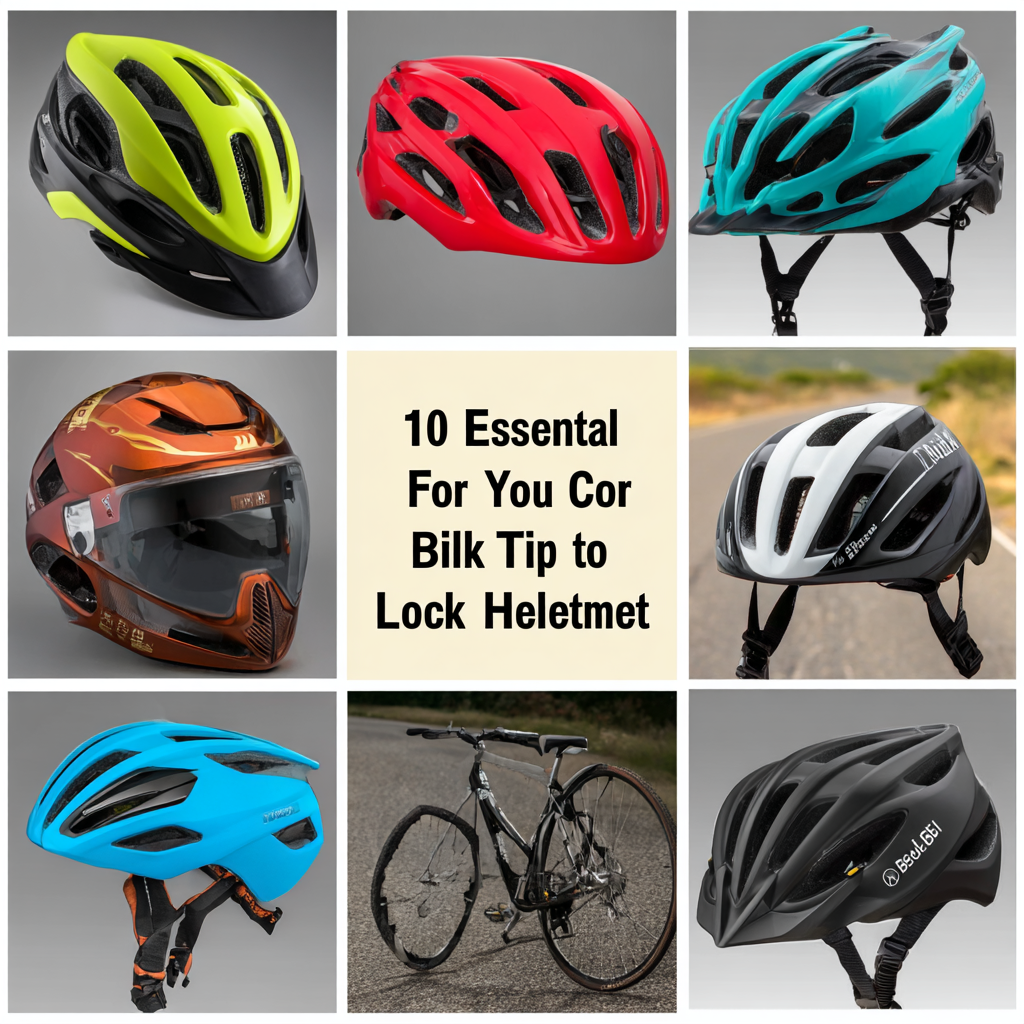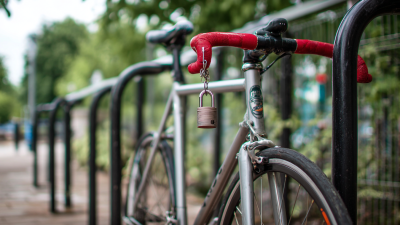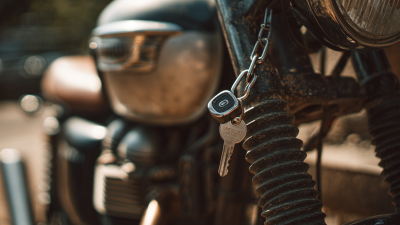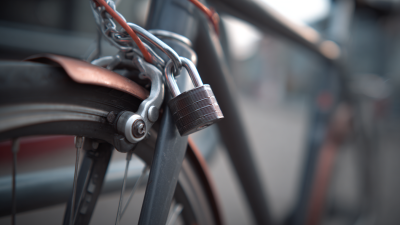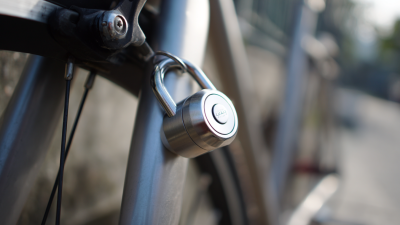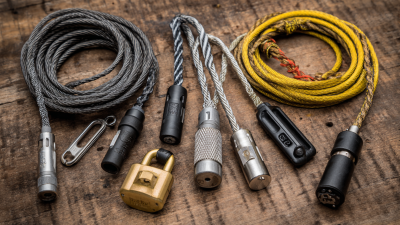-
Phone
-
E-mail
-
Whatsapp
-
WeChat

Leave Your Message

When it comes to safeguarding one of your most essential cycling accessories, the bike helmet, the importance of a reliable lock cannot be overstated. According to a recent report by CyclingSecure, approximately 1.5 million bicycles are reported stolen each year in the United States, and a significant number of those thefts involve the helmet being left unprotected. As such, understanding how to choose the best lock for your bike helmet becomes crucial for every cyclist.
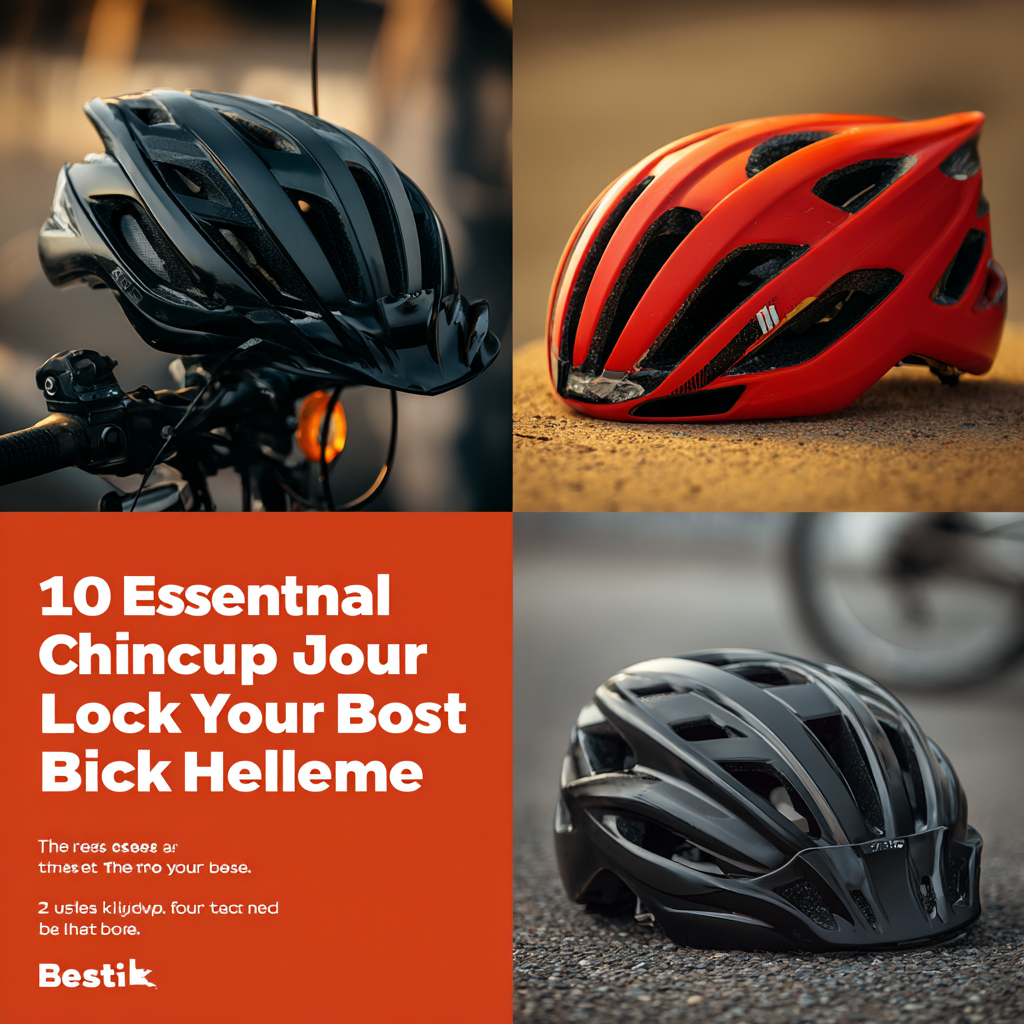
Industry expert and security advisor, Dr. Lisa Greene, emphasizes, “Investing in a quality lock not only protects your helmet but also ensures that riders can feel secure while they ride.” With a variety of locking mechanisms on the market, cyclists must consider factors such as durability, security, and ease of use. In this guide, we will explore ten essential tips that will help you make an informed decision when selecting the most effective lock for your bike helmet, ensuring your valuable gear remains safe from theft while you enjoy your rides.
When it comes to securing your bike helmet, understanding the different types of bike locks is crucial for effective protection. Common options include U-locks, chain locks, and cable locks, each offering varying levels of security and convenience. U-locks are particularly robust, providing a strong barrier against theft, and are ideal for locking your helmet to the bike frame or a solid object. On the other hand, chain locks, while heavier, offer flexibility in securing multiple items or fitting around larger structures.
Cable locks are generally lighter and more portable, making them suitable for quick stops. However, they tend to be less secure, so they are often best used in conjunction with a sturdier lock for added protection. When choosing a lock, consider factors such as the area you frequent and how long you’ll leave your helmet unattended. A secondary consideration is the lock's weight; if you plan to carry it on your rides, a balance between strength and portability will enhance your biking experience. By understanding these options, you can make a more informed decision that protects your helmet effectively.
When choosing the best lock for your bike helmet, the materials used in the lock are crucial for both durability and weather resistance. Look for locks made from high-quality steel, as they provide enhanced strength and are less likely to be cut. Stainless steel is particularly advantageous due to its resistance to rust and corrosion, ensuring longevity even in harsh weather conditions. A lock featuring a tough plastic or rubber coating can also offer additional protection against scratches and moisture, further extending its lifespan.
Another important factor to consider is the type of weatherproofing used in the lock's design. Locks with sealed mechanisms and lubrication systems are better suited to withstand rain, snow, and varying temperatures. Ensure that all moving parts are designed to resist seizing due to ice or grit build-up. Selecting a lock constructed with durable materials will not only safeguard your bike helmet but also give you peace of mind knowing that it can endure the elements while keeping your gear secure.
When it comes to securing your bike helmet, choosing the right locking mechanism is crucial for both convenience and safety. Key locks are often considered the most secure option due to their simplicity and effectiveness. They require a physical key, making it difficult for potential thieves to access your helmet without the proper authorization. The downside, however, is the risk of losing the key or misplacing it, which can lead to unwanted hassles. For those who prioritize peace of mind, key locks can be a reliable choice, provided you keep your keys safely stored and readily accessible.
On the other hand, combination locks offer a unique blend of convenience and flexibility. With no physical key to carry around, users can simply remember a code to unlock their helmets. This feature makes combination locks less prone to locking issues associated with lost keys. However, the security level may vary depending on the complexity of the combination. Simple, commonly used codes can be easily guessed or manipulated, making it crucial to choose a lock with a combination that is both memorable for you and difficult for others to crack. Ultimately, the choice between key and combination locks comes down to personal preference and the specific security needs of your bike helmet.
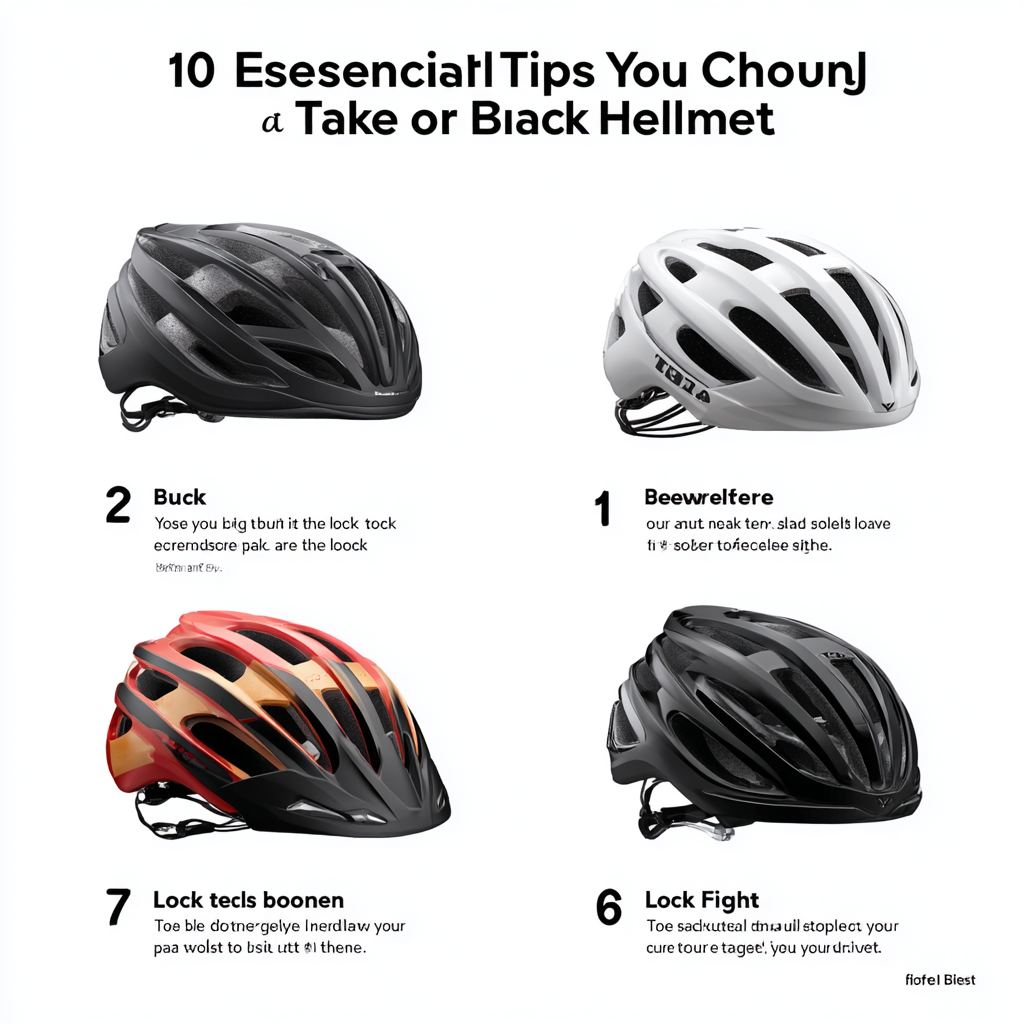
When selecting a lock for your bike helmet, one of the key considerations is the ideal size and weight for easy transport. A lock that is too bulky or heavy can add unnecessary burden to your ride, making it less enjoyable. Look for locks that are compact yet provide sufficient security. Folding locks or lightweight cable locks can offer a balance between portability and protection, allowing you to easily stow them in a backpack or attach them to your bike frame without hindrance.
Another important aspect to consider is the ease of use. A lock that is convenient to transport should also be straightforward to secure. Opt for locks with flexible designs that can be easily maneuvered around your helmet and bike frame. Additionally, consider the locking mechanism—key or combination. While key locks can be more secure, combination locks eliminate the need to carry an extra key, which can enhance portability. Ultimately, the perfect lock for your bike helmet will be one that combines lightweight construction with user-friendly features, ensuring you can secure your helmet without compromising your ride.
When selecting a lock for your bike helmet, it's crucial to consider additional security features that can enhance protection against theft. According to a report by the National Bike Registry, approximately 1.5 million bicycles are stolen each year in the U.S., with a significant number of these incidents involving the theft of accessories like helmets. Therefore, investing in locks with advanced features can significantly reduce the risk of loss.
One valuable option is a lock that integrates alarm systems. Research indicates that bike thefts can be deterred by up to 70% when a loud alarm is triggered. Smart locks equipped with Bluetooth technology allow users to receive alerts on their smartphones, making it easier to monitor the security of their gear. Additionally, using locks made of high-grade materials, such as hardened steel, can resist cutting and prying. The Insurance Institute for Highway Safety notes that certain lock designs, like U-locks, are deemed significantly more secure than traditional cable locks, providing an added layer of protection for both your bike and helmet.
